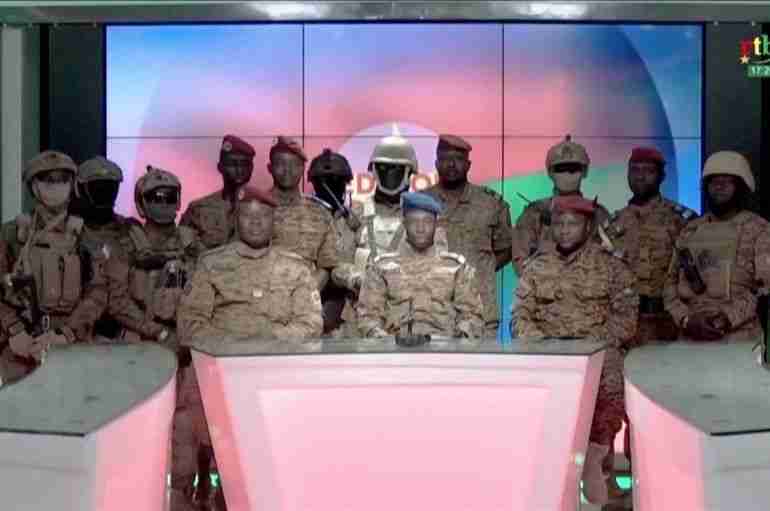After The Government Failed To Stop Islamist Insurgents, Burkina Faso’s Military Has Seized Power In A Coup
The military has seized power in Burkina Faso, deposing the democratically elected president.

The military has seized power in Burkina Faso, deposing the democratically elected president.
The coup is the third in West Africa in the last 18 months and comes after protests erupted on Jan. 22 against the government’s inability to stop the rise of Islamist militant attacks in the poor, landlocked West African country.
The attacks, which are part of a broader campaign in Africa’s Sahel region by militants linked to al-Qaeda and the Islamic State, have “destabilized broad swathes of Burkina Faso, displaced 1.4 million people, and caused 2,000 deaths last year alone,” according to the New York Times.
Protesters had been calling for the country’s 64-year-old president, Roch Marc Christian Kaboré, who was first elected in 2015, to resign.
In an address on state TV on Monday Jan. 24, the military said it had been forced to seize power due to the deteriorating security situation in the country and Kaboré’s inability to manage the crisis, according to AP.
A spokesman said Kaboré and other civilian leaders had been captured “without bloodshed” and were being kept “in a secure place,” the New York Times reported.
It also presented Kaboré with a resignation letter that he signed, Reuters reported.
“In the interests of the nation, following events that took place since yesterday, I have decided to resign from my role as president of Burkina Faso,” the letter, which Reuters verified, said.
It said it had dissolved the government and parliament and suspended the constitution. It also instituted a curfew and closed the country’s borders until further notice.
News of the coup was met with celebrations, as people took to the streets in support of the takeover, which they see as a step towards ending the attacks.
The coup was condemned by the US, the United Nations, as well as the regional political bloc, the Economic Community of West African States, or ECOWAS.
On Friday Jan. 28, ECOWAS suspended Burkina Faso and warned of possible sanctions.
The African Union followed on Monday Jan. 31, suspending Burkina Faso from participating “in all AU activities until the effective restoration of constitutional order,” Al Jazeera reported.
Shortly after on Monday, the military government said it had restored the constitution and appointed the coup leader, Lieutenant-Colonel Paul-Henri Sandaogo Damiba as the head of state for a transitional period.
This is the third military coup in West Africa in the last 18 months, after
ECOWAS has agreed to send a delegation to meet the coup leaders in the capital of Ouagadougou.
The military has said it would work to establish a calendar that is “acceptable for everyone” for holding new elections but did not give further details, AP reported.





